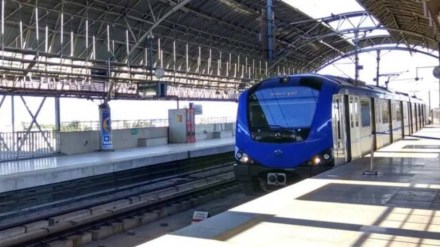Metros have become a lifeline in India. As the years progress and the world advances, more and more technology is being integrated into the Indian metro networks.
Driverless Trains: When is the launch?
The driverless metros that Chennai has plans to bring to the rails have been in the news for quite some time. The Chennai Metro Rail (CMRL) plans to operate driverless trains in Rs 61,843-crore Phase ll project. The first service is expected to be launched in 2026.
Chennai Driverless Metro: Distance, Stations and more
In a recent report, The Hindu said that as per CMRL, the Phase ll project will see 138 three-coach driverless trains being purchased. The trains will be bought in three contracts for three corridors, which are Madhavaram to SIPCOT (corridor 3), Light House to Poonamallee (corridor 4) and Madhavaram to Sholinganallur (corridor 5).
A CMRL official has said the trains will undergo “extensive tests” for a year before they are deployed to serve the Chennai public. The designs of the trains are being finalised and will be ready in a month. The first batch of trains will have 26 trains. They will run between Poonamallee and Porur. All these trains will be delivered by the middle of next year.
Last year, CMRL’s Director (Systems-Operations) Rajesh Chaturvedi told ANI that the trains will run solely on the signals they receive. The Phase ll network will run for 118.9 kilometres with 128 stations. However, the trains will have roving attendants during the initial operational years to take care of any glitch and other emergencies that may surface. The Hindu reported that a CMRL official has said that they plan to retain staff during the first three years.
CMRL’s discarded plans
Earlier this year, the CMRL discarded its plans to lease 42 three-coach trains rather than buying them, which was a plan to reduce the cost of the project. However, the plan was abandoned after CMRL found that leased trains cannot be used elsewhere after the lease period has ended. After meeting with train manufacturers and learning about why the metro trains are not leased, the CMRL found that since the trains are made specifically for a city or a metro line, they cannot be used later elsewhere.
